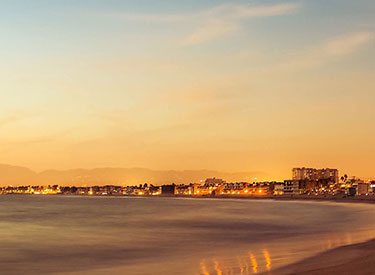


The Middle East is one of the most fascinating and extraordinary travel destinations on the planet, being an open plethora of ancient cities and historic monuments, all which resonate with its astonishing history. In visiting this interesting part of the world, you must first research your destination, and investigate the culture and customs of this remarkable place, so to not offend or insult the locals, whose home you are visiting. There is a lot of advice and tips available to ensure your journey to the Middle East is one of great fun, adventure and exploration. Here are just a few:
1. It is a local custom in most places in the Middle East to dress conservatively, especially if you are female. Loose pants and a long linen shirt are best and will help to blend you in with the locals and detract attention from you. You may also choose to wear a cotton scarf to cover your chest. In more modest cultures such as that of Afghanistan it may be required for women to cover their hair.
2. Physical contact with any Middle Eastern female is considered highly offensive, and as a visitor, you should respect this custom and refrain from it.
3. If you come across any large gatherings or demonstrations in the streets, it is best to keep your distance from this, and do your best to cooperate with any authorities.
4. After researching the exact Middle Eastern countries that you will be travelling to, be sure to investigate which parts of the country are dangerous for tourists and should not be visited. For example, Pakistan’s North-eastern border with India known as the ‘Kashmiri Line of control’ should be avoided, as well as Iran’s border with Afghanistan and Pakistan due to political issue and civil unrest. It is very important to be aware of this.
5. Be respectful of Middle Eastern holy places, such as mosques and remove your shoes and cover your shoulders and legs when visiting. Skirts or shorts are unacceptable and will attract unwanted attention.
6. In some parts of the Middle East such as Afghanistan, Pakistan and Uzbekistan, you must ask permission before photographing certain buildings and people. It is also important to steer clear of photographing and military buildings, as some local countrymen are wary of the remnants of soviet-era surveillance.
7. Although shaking hands is an acceptable and standard greeting in the Western world, holding hands in public in the Middle East is not accepted and is frowned upon. It is best to refrain from contact, introduce yourself, and address locals by their full name that they were introduced with.
8. Navigating yourself around any Middle Eastern city during the night is considered unsafe. If it is necessary to do so, try to travel in groups and be aware of your surroundings.
9. Although many in the tourist industry speak English, the locals in most Middle Eastern countries will be flattered if you attempt the local language. Do your research on the basics before you leave, including the words for Hello, Goodbye, Thank you and Please.
10. When visiting the Middle East, especially in Saudi Arabia, it is considered inappropriate to interact with men. Women who visit restaurants not accompanied by a male may be refused service or harassed.
11. In Saudi Arabia possessing alcohol is illegal, not to mention drugs. In many other Middle Eastern countries, alcohol may be accepted but is illegal to drink on the street.
12. During the holy month of Ramadan, the faithful fast from sunrise to sunset, so you can show respect by not consuming food or drink in front of those who are fasting.
These are just a few tips that will ensure your travel to the Middle East is a smooth and as safe as possible. When planning your trip, be sure to research each individual country on your itinerary, as some of the countries differ in regards to their local customs. The Middle East is not a place where you should venture off the beaten track, so stick to the main cities and you should be in for an amazing adventure.
Find out more from your local, personal travel manager. Visit http://www.travelmanagers.com.au/ptm-search/